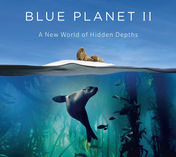If Clothes Could Talk
- Kate Brockie
- Mar 1, 2018
- 3 min read

If you listen very, very carefully, you might just hear them. Go on, put an ear up to your wardrobe door. You’ll have to be quiet, because they can be a little shy sometimes. Did you catch it?
The suave velvet blazer, purring sophisticated but approachable with a wink of its buttonhole.
The oldest, most worn-out jeans, whispering hello my old, comfortable friend.
The multi-coloured dungarees, excitedly squealing your mother is going to hate me!
Oh, and don’t forget about the exercise leggings, well versed in stretching around legs that have no intention of going to the gym, muttering stereotypical Exeter student.
Your wardrobe may not be as chatty as mine, but our clothes inevitably make a statement about us. It might be a loud “look at me!”, or a disgruntled “I just rolled out of bed”, but its a declaration projected into the world none the less. Our clothes are the second skin that everyone gets to see. They are a form of expression, weaving and stitching the perceptions of us that the world around us holds. But our clothes have more to their stories than just the words that they say about ourselves.
In fact, the t-shirt I’m wearing right now is quite the adventurer. He started life basking in the cotton fields of Uzbekistan, before being bundled into a large sack and taken to a cotton spinning plant. Feeling a little queasy after that experience, he was shipped to a weaving factory to be made into fabric. In his elegant new fabric form, he found himself in a readymade garment factory in Bangladesh, being laid out and chopped into pattern pieces. Nimble fingers stitched down his seams and inserted some sleeves. It tickled a little under the armpits. After a quick iron and a fold, he was boxed and shipped over to the UK before finding his way onto my back.
I fear what this t-shirt saw in all those places, too. This t-shirt is a product of the fast fashion industry. It’s a product of an industry marked by tragedies, like 2013 Rana Plaza factory collapse, as it ruthlessly shaves pennies of price tags at the expense of lives. It’s a product of an industry that thrives on unsustainable consumption and disposal, as roughly two million tonnes of clothing and textiles are thrown away each year in the UK alone. It’s a product of an industry that exploits, pollutes, and sweeps the devastating realities it crafts under the rug with the toe of this season’s ‘in’ shoe.
If this t-shirt could talk, I don’t think I’d be able to listen to what it has to say.
***
I put on righteousness as my clothing;
justice was my robe and my turban.
I was eyes to the blind
and feet to the lame.
I was a father to the needy;
I took up the case of the stranger.
I broke the fangs of the wicked
and snatched the victims from their teeth.
Job 29 v 14-17
***
This description of Job’s commitment to justice is captivating. He talks of putting on righteousness as his clothing. It’s a powerful metaphor, for sure. But while it is a metaphor –righteousness can’t be grown in fields, harvested, and spun into thread like cotton can - it also holds a very literal truth. If I’m going to wear a robe, then I’d like it to be one screaming ‘justice!’, not one muttering ‘exploitation’, please.
But how do we break the fangs of the wicked in such a powerful and vast, socially and environmentally destructive industry? How do we snatch the victims - those left exhausted by exploitative labor, hungry by unreasonably low wages, motherless by deadly factory disasters – from their teeth?
It’s hard. Maybe even harder than pulling off those multi-coloured dungarees. But it is possible.
In fact, things are already changing. There are brands who are decisively committed to putting people before profits. There are movements of people recommitting to love people and use things, not the other way around. Even as humble wearers, we can contribute. Every ten-pound note can be an investment into the justice we desperately want to see in the world. Every knot of a scarf can be a statement of love to our neighbours on the other side of the world who have painstakingly knitted it. Every twirl of our skirt can be a declaration of dissatisfaction with an industry that exploits our brothers and sisters and our planet.
This next week, Just Love Exeter is exploring what Just Fashion looks like. We would love to learn alongside you.
So, go and have a chat with your wardrobe. What do your clothes say about you? What would you like them to say about the justice that you want to see in the world?


















Comments